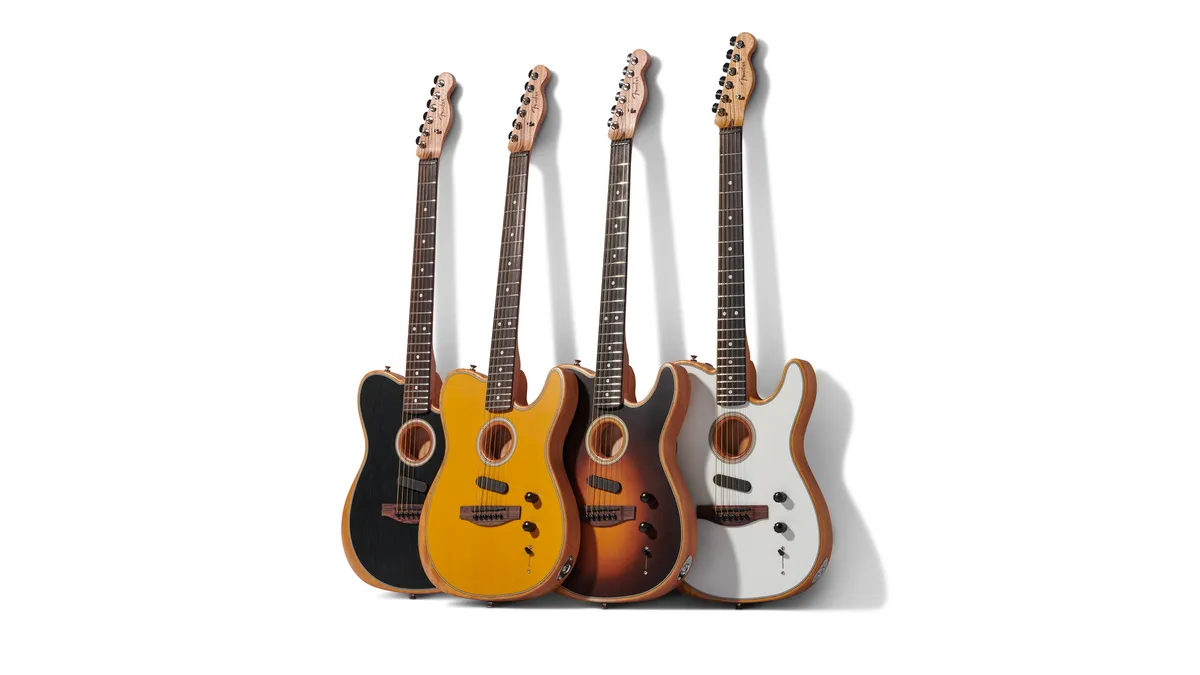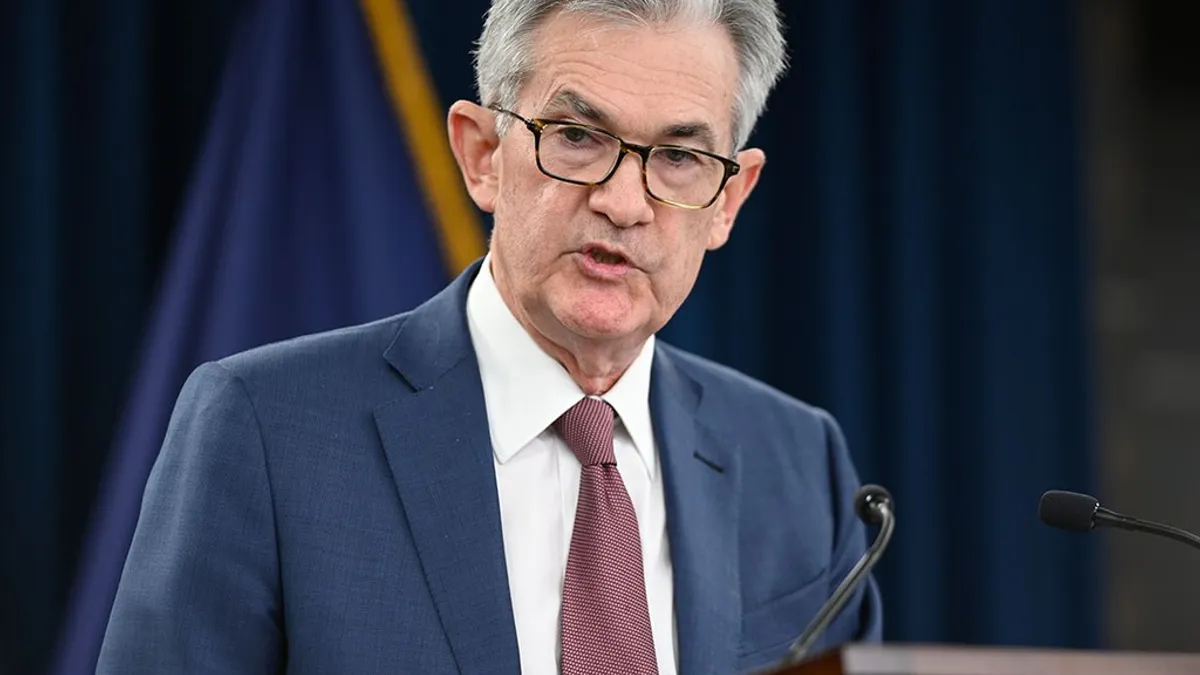The freshly minted CFO of Fender Musical Instruments Corporation sees his appointment as anything but a routine private equity move to pave way for a financial exit or IPO.
This was not a case where private equity is parachuting an executive into the company to sell it or take it public, Fender CFO Matt Janopaul told CFO Dive. In fact, it's the exact opposite scenario, he said. "It's to have a CFO in the company that is really going to think about it long-term and that, more importantly, [knows] the history of where the company has been and what it’s capable of going forward.”
In choosing Janopaul, 51, the maker of iconic guitars coveted by generations of rock stars and hobbyist musicians is tapping a veteran that has both deep roots in its C-suite as well as in the investment groups that have held stakes in the company over the years, most notably Servco Pacific Capital. Indeed, Janopaul hired his predecessor, outgoing CFO Jim Broenen, he said.
Janopaul was managing director of Servco Pacific Capital, a long-time equity holder in Fender and the direct investment arm of Servco’s Pacific’s holding company. Back in 2001, when he was a partner at private equity firm Weston Presidio, then a Fender investor, he first began working closely with Fender’s management team. In 2005 he jumped to join Fender for a period and held various roles, including president and chief operating officer.
Berkshire Hathaway of Hawaii
Janopaul is taking the finance reins of Fender as it enjoys tailwinds from a pandemic surge in demand. At the same time, Servco’s recently increased ownership stake gives Fender breathing room to go after longer-term growth opportunities that are often anathema to private equity ownership focused on three-to-seven year time horizons, he said.
Servco, a kind of multi-generational family-office/holding company that Janopaul dubbed “the Berkshire Hathaway of Hawaii,” also has deep ties to Fender that go back to 1985 when it was part of a small group of investors who backed the buyout of Fender from CBS. In 2020 it announced it was increasing its holdings in Fender by acquiring TPG Growth’s shares in the company, securing a majority stake. Servco has “a 100-year track record that includes stewarding iconic brands through committed, long-term partnerships that span multiple generations,” Servco CEO Mark Fukunaga said in a statement at the time.
Servco’s doubling down on Fender improves the company's trajectory, Janopaul said. And he believes an increasing number of companies are considering family offices as their lead investors because of the kinds of opportunities that come when the ownership isn't looking for an exit. “It’s actually asking management teams to step back and think differently,” he said.
Come a long way
Janopaul, who is joining a company that once claimed U2’s Bono and The Edge as board members, loves working in the music world as well as being at the kind of rare company that inspires employees to tattoo its name on their arms. He has a big legacy to build on.
Founded in California in the 1940s, the company’s instruments and products have been interwoven with Rock n’ Roll history, from Jimi Hendrix playing “The Star-Spangled Banner” on a Fender Stratocaster at the Woodstock festival in 1969 to Kurt Cobain playing Fender Mustang, Jaguar and Strat guitars on his 1990s grunge hits.
Behind the star turns that its instruments have made, the fortunes and ownership of the company have also taken many twists and turns including a 2012 aborted plan to go public after the IPO market cooled in the wake of a disappointing stock debut by Facebook Inc. Now, with the long term investor Servco firmly in place, Fender has no plans to go public, Janopaul said.
Fender is one of a number of companies whose outlook has brightened in the pandemic, as some people used the additional time at home during COVID-19 lockdowns to begin playing guitar. The privately held company’s orders jumped 29% to $1 billion in 2021 from the year earlier, he said. Based on the 2x-3x revenue multiple that lifestyle brands trade at, that roughly pencils out to peg the company’s valuation at $2-$3 billion, he said. “The company has come a long way, he said, noting it was losing money on $40 million in revenue back in 1985.
Looking ahead, he is going to be focused on growing the company, forecasting supply and demand to make sure production capacity can scale up and down as the pandemic eases and building out what he calls a “digital ecosystem.” That is comprised of services, software and e-learning offerings that will help keep all the new players engaged. Mindful that 90% of all first-time guitar players abandon the instrument within their first year, the company wants to create touch points to keep the music playing.
“If you can reduce the abandonment rate from 90% down to 80% you double the size of the market,” he said.






















